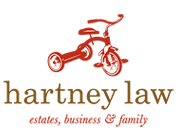Not too long ago, I heard a presenter at bar association meeting say, “Probate is easy in Colorado. Any attorney who recommends a trust-based plan is practically committing malpractice.”
I could not believe my ears. Since then, I’ve heard several probate lawyers and financial advisors say in all seriousness that there’s no need to avoid probate in Colorado because it’s cheap and easy.
What exactly is easy about a lawsuit?
“Probate is a lawsuit you file against yourself
after you die for the benefit of your creditors.”
Folks who say probate is easy are often probate lawyers who get to charge an hourly fee to dispose of your estate. In their minds, it’s better to spend the money when you’re gone because you won’t need to know what it’s costing. But your loved ones will know. They’ll figure out how much it costs to pay hourly fees that have no end in sight. They’ll know that they have to appear in court. They’ll know that you could have done something but chose to let it ride instead.
Okay, time for some mechanics in estate planning. Here are some of the factors that affect your direction when it comes to your estate plan. In general, families who choose to plan can opt for one of two main strategies. One is a will-based plan (meaning a probated estate). The other is through a trust-based plan (meaning a private estate). Here’s a little compare and contrast on them both.
Will-Based Plans
A will-based plan is an assurance of litigation. By definition, a will comes under the jurisdiction of the courts, which means it must be probated.
Will-based plans are limited to a straightforward distribution of your assets after you die. There are no provisions for distributing your assets over time, nor is there any way to use it if you become incapacitated. A will doesn’t help your family manage your affairs if you’re incapacitated. Instead you’d be subject to “living probate,” a conservatorship if you’re unable to manage your own affairs. A court will appoint a two lawyers to oversee your estate if you’re incapacitated. Both of these folks get to charge you for their time and effort. And usually not at a friends and family rate.
If you have a will-based plan, hope to heaven that you live long and die fast. Because if you hang on for any length of time, living probate will eat up money very quickly—that is over and above medical bills.
Some people obtain some of the tax planning characteristics of trust plans by making testamentary trusts inside their wills. This means that, after they pass away, their personal representative (PR) will create ongoing trusts for their beneficiaries according to the instructions left in the will.
One of the weaknesses of testamentary trusts is that it must still be probated just like a will which translates to additional legal fees, lots more hassle, and it doesn’t provide any privacy protections. The other downside is that a testamentary trust is likely to be as expensive to organize as a living trust would have been while alive.
Another risk of will-based plans is that they’re often done online without the advice of counsel. When DIYing, people make many mistakes that can cost their families oodles of cash and a whole lot of heartache. If you’d like a peak into what can happen if you DIY online, read this eye-opening article.
The pros of will-based plans are: they’re cheap, easy to draw up, and, if you have no assets or minor children, relatively easy to probate if no one will contest it. If that sounds like you…Bingo! You’re the lucky winner.
For some people, a simple will is the perfect solution. There are some folks who don’t even need a will but really only need financial and medical powers of attorney, and a living will. For people with a lot of love to pass on but no material possessions, leaving this planet with a simple will or even intestate is fine.
Trust-Based Plans
A trust-based plan is a better choice for many families. Trust creation is not a DIY job, though. You really need an attorney who knows what they’re doing to create a living trust plan for you.
Living trusts are like treasure chests. To the rest of the world, they’re invisible. While you are alive, you take your treasures in and out of your trust as if it didn’t exist. But if something happens to you and you’re incapacitated, you can pass that treasure chest on to someone who can step into your shoes and take care of your life, your assets, your business, your family.
When you pass away, that trust becomes its own unique entity. Your social security number is retired (oh, darn, no more social security tax) and your trust gets its own employer identification number (EIN). Your successor trustee then administers your trust for the benefit of your beneficiaries—your loved ones—in the way you have instructed them in your trust.
Trust Advantages: The beauty of the trust plan is that a court is not involved. It’s totally private. There is no inventory for predators to scrounge through at the courthouse. There is no risk that your loved ones will be poached on by slick con artists who know how to separate heirs from new wealth. Everything remains private, as it should be.
In a trust, we have the opportunity to make unique arrangements for our loved ones. We can make trusts that encourage our children to be productive and creative members of society; that provide for our loved ones, that give to charity; that pay for college; that put a down payment on a first home, that provide seed money for a child’s business. And we can take advantage of all the credits the IRS offers without any slipping through the cracks. How cool is that?
Even cooler, we can protect those assets even from our loved ones’ creditors. If you knew you could keep something sacred for your child, something they could rely on even if they got divorced or are sued in the future, wouldn’t you? And what if you knew you could shut off the valve if your child was wrestling with an addiction or other illness that might dilute your gift to them? What if you could shut it off until they got better? Wouldn’t you? Well, trust-based systems are the way to do that.
Trust Disadvantages: The cons of trust-based plans are threefold.
First, they’re more expensive to set up. In general, a family with assets below the federal estate tax exemption will need a foundational revocable trust plan, which can cost between $3500 and $7000. The variance depends on the size and complexity of your estate and what you want it to do—the more complicated, the more expensive. A good attorney will help you figure out what you want your plan to do and so you can pay for just that. Pay any less than that…start thinking about the quality and effectiveness of the plan.
Second, they need maintenance. While you’re living, it’s important to make sure your assets are titled the right way so they pass through your trust. Without that, trusts are as worthless as the paper they’re printed on. So you do have to check on them from time to time. A good attorney will be available to you throughout the initial funding process and have staff to serve you as well. Beyond the initial funding process, some lawyers have membership programs that give you access to attorney time at an extreme discount each and every month. If you think you’ll need to have access to an attorney frequently, look for one of those programs. But pick an attorney who communicates regularly with his or her clients so you can stay up to date on the latest developments in estate law.
The last downside to a trust-based plan is that after you pass away, there will be some administrative costs. No one knows what those costs will be in the future but the conventional wisdom is that it’s a much smaller percentage of the estate than a formal probate would be.
Full Disclosure
Obviously, I’m biased. I know trust plans are superior in almost every way for people with kids and assets despite the initial investment cost. But here’s another reason that a trust-based plan is better, and it’s a societal reason that I believe trumps the statement “probate is easy.”
It’s not the court’s job to distribute our wealth. It’s our job. We’re grown up adults and have a duty to take care of our families to the best of our ability and that includes planning for the worst. Probate clogs up our courts and takes judges’ time away from folks who really need it. We should all be mindful of taking up precious legal resources and abdicating our responsibility to the courts. (Okay, stepping off my soapbox now).
The reality is that when you pass away, you won’t be here to care about your assets. And if you don’t care, that’s absolutely your right. None of us have to care.
But many of us do care. I do. Heavens, I’ve had three different estate plans and spent a lot of money doing them. I’m grateful now that I have the skill to do it myself. I’ve invested years and many thousands of dollars to be able to do it for others the way I wanted it done for myself…the right way.
Odds are, if you complete your estate plan, you will need to revise it over the years. And you really should! The law changes constantly, assets change, families change. The beauty of finding someone you really like and want to do business with is that you have them to turn to whenever you need to revisit and revise your plan for the changing times.
My goal is to be here for my clients as a long term, trusted advisor. I’d like to help families learn what they need to know so they can make good decisions for themselves, including getting clear on the financial and emotional costs of all these choices.
I haven’t discussed what it looks like when a family has no plan in place. That’s another ball of wax. If you would like to find out what would happen to your family if something happened to you now, please contact my office either by calling 303-747-3909 or using the contact form through the icon above. I’d be honored to be your guide.
One last thought, if someone says to you that probate is easy, send them this link.


 A later-in-life attorney, Martha Hartney opened the practice in 2010 to serve the people she loves because she is committed to helping moms and dads bring their greatest gifts into parenting fearlessly and with joy and making sure children are completely cared for if something happens to their parents.
A later-in-life attorney, Martha Hartney opened the practice in 2010 to serve the people she loves because she is committed to helping moms and dads bring their greatest gifts into parenting fearlessly and with joy and making sure children are completely cared for if something happens to their parents.
